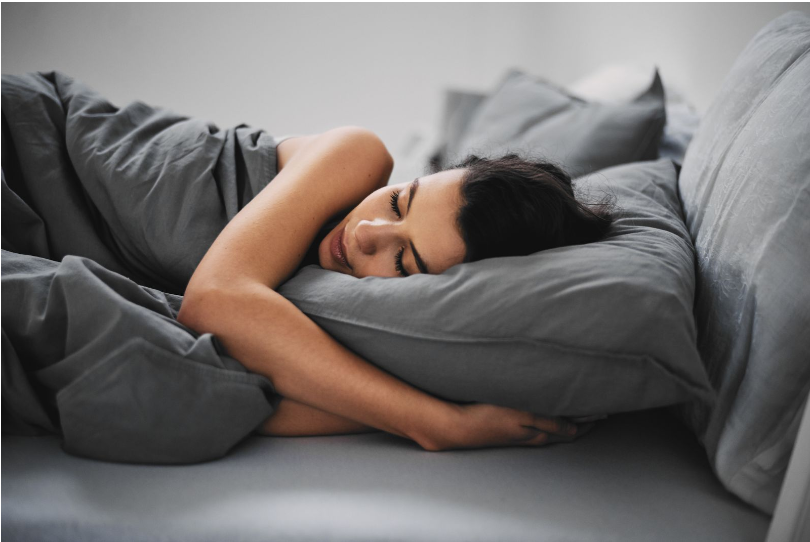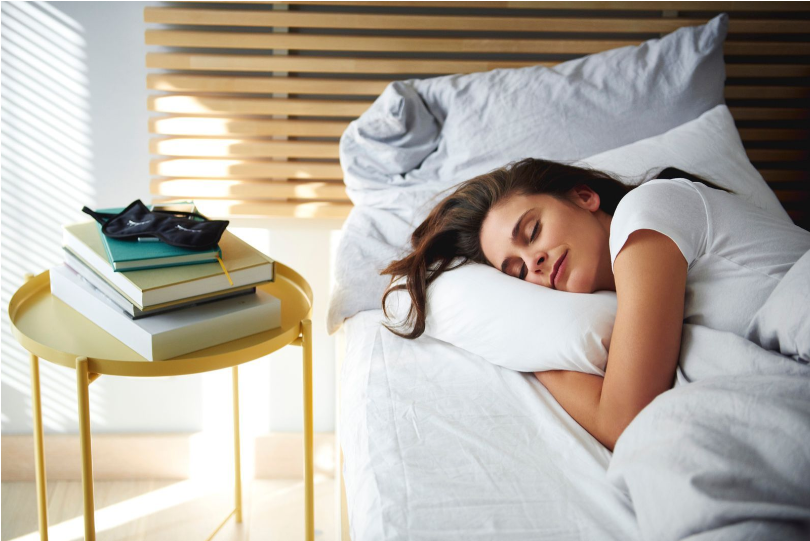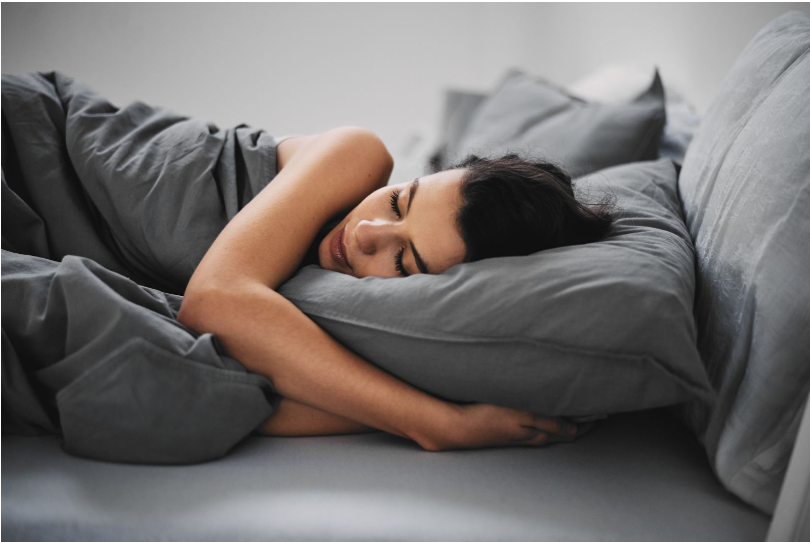Is there anything more frustrating than lying awake in a stifling bedroom, tossing and turning while the heat clings to your skin? When the air is heavy and the sheets feel suffocating, sleep can feel almost impossible.
Science confirms what our restless bodies already know: temperature has everything to do with how well we sleep. The sweet spot for drifting off—and staying asleep—falls between 60°F and 70°F (16–21°C). Anything warmer interferes with your body’s natural cooling process, the one that signals to your brain, it’s time to rest.
“Sleep cycles are regulated by circadian rhythms, which are closely linked to body temperature,” explains Adrienne Adhami, health coach and author of Decisions That Matter. “At night, our core temperature naturally drops. But if the room is too hot, the body struggles to make that shift, making it harder to settle into deep, restorative sleep.”
The good news? You don’t have to crank the air conditioning and dread the energy bill. With a few clever strategies, you can cool down naturally and reclaim your rest. Think of this as your survival guide to summer sleep—a collection of 17 practical Do’s and Don’ts.

✅ DO’s: Smart Ways to Stay Cool
Block the sun during the day.
Draw curtains or blinds to stop your bedroom from heating up like a greenhouse. Even with the windows open, keeping the room dim will help maintain a lower baseline temperature.
Consider magnesium.
Magnesium supplements can help relax muscles and support deeper sleep. “For me, it was a game-changer,” says Adhami.
Cool your pulse points.
According to Neil Robinson, Sealy UK’s resident “Sleep Officer,” pressing a cold towel or an ice pack to your wrists or neck can trick your brain into thinking your body is cooler. For extra relief, freeze a water bottle and use it as a makeshift ice pack.
Dip your feet.
Since our hands and feet regulate body temperature, soaking them briefly in cool water before bed can help lower your core temp.
Take a cool shower.
If you can handle it, a cold shower will bring your temperature down quickly. Even a lukewarm rinse works wonders if icy water feels too harsh.
Chill your sheets.
For the adventurous: pop your pillowcase or even your sheets into the fridge or freezer for 10 minutes before bed.
Choose breathable bedding.
High-thread-count, natural fabrics like linen are your best friends—they let air circulate freely and wick away heat.
Upgrade your mattress.
Your mattress is as important as your bedding. Materials like Tencel or Purotex-infused fabrics are designed to regulate temperature and prevent overheating.
Check your duvet’s TOG rating.
Swap out heavy winter comforters for lightweight summer duvets with lower TOG values (a scale measuring insulation).
Sleep solo.
It’s not romantic, but sharing body heat makes it harder to stay cool. Having the bed to yourself means more space to sprawl and cool down.
Stick to a sleep schedule.
Consistency matters. Hot weather tempts us to stay up late or sip nightcaps, but keeping a steady routine helps your body adjust—even in the heat.

❌ DON’Ts: Habits That Make Heat Worse
Don’t leave windows open all day.
Counterintuitive, yes, but open windows often let heat in. Keep them closed and shaded during the day, then ventilate at night.
Don’t rely on noisy bargain fans.
A cheap fan might circulate air but can keep you awake with constant buzzing. Invest in a quiet, energy-efficient model.
Don’t drink alcohol before bed.
A nightcap won’t help—it dehydrates you and makes overheating worse. Opt for a glass of water instead.
Don’t overload on protein at dinner.
High-protein meals raise your metabolism, which in turn raises body heat. Lighter dinners are your friend.
Don’t exercise late in the evening.
Workouts raise core temperature and delay your body’s natural cooldown. Morning or midday exercise is better for hot weather.
Don’t nap excessively.
Feeling drained in the heat is normal, but long naps can sabotage your ability to fall asleep at night. Save the rest for bedtime.
The Takeaway
Summer nights don’t have to mean sleepless nights. By adjusting your space, your habits, and even your pre-bed rituals, you can outsmart the heat without overworking your AC. Sometimes, it’s as simple as dimming the lights, cooling your wrists, or switching to linen sheets.
After all, restful sleep isn’t just about comfort—it’s about giving your body the chance to restore, even on the hottest nights of the year.
